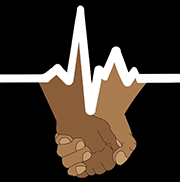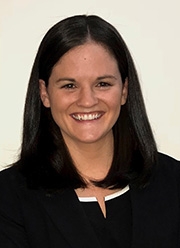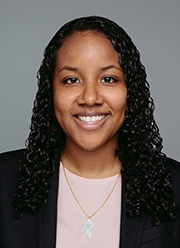Grand Rounds | M&M | Noon Conference | About Us
Welcome to the Race and Health Curriculum website! We are thrilled you want to learn more about our mission here in the Department of Surgery at Columbia University Irving Medical Center. Our goal is to increase awareness and knowledge of racism and racial inequity in our healthcare system through consistent programming at the trainee and faculty level.
We utilize three existing educational platforms, Grand Rounds, Morbidity and Mortality Conferences, and Biweekly Noon Conferences, to discuss racial injustice and critically examine how racism infiltrates the healthcare system.

Grand Rounds
We created an initiative to regularly invite experts on race and health to our Grand Rounds sessions in the Department of Surgery. Utilizing the format of Grand Rounds allows our faculty and trainees protected time to gain an introduction and insight into issues of racial injustice and health inequity as it relates to surgical care, how it is relevant to academic clinicians, and how it impacts the community that we serve in Washington Heights.
Some of our Grand Rounds topics and speakers include:
- “Confronting Racism in Health and Health care”
Robert Fullilove, EdD | Associate Dean for Community and Minority Affairs, Professor of Clinical Sociomedical Sciences and the co-director of the Cities Research Group, Columbia University Mailman School of Public Health - “Realizing our Promise: Relentless Professional Development & Building an Inclusive Culture”
Justin B Dimick, MD, MPH | Chair of Surgery at University of Michigan School of Medicine - “Looking Inward: Steps Towards Eliminating Inequity In Surgery in the Age of COVID-19”
Zara Cooper, MD, MSc | Michele and Howard J. Kessler Distinguished Chair in Surgery and Public Health at Brigham and Women’s Hospital
Morbidity and Mortality
In Morbidity and Mortality conference, our goal is to examine model cases that explore themes of race, racism, and health inequity as it pertains to patient care or patient care interactions. We based this portion of our curriculum on the Cultural Complications Curriculum developed by Dr. Chelsea Harris, a general surgery resident at the University of Maryland.
This curriculum was piloted at the University of Michigan and University of Maryland and has been adapted by many surgical programs across the country. The curriculum consists of twelve themes that range from foundational concepts to how race and diversity can affect advancement and professional development.
We have integrated our program into these sessions by presenting a cultural complication case in place of a surgical complication case. We approach each case in the same manner as a surgical complication: a presentation of the objective facts of the case or scenario followed by discussion of a teaching point from the case with pertinent supporting evidence.
By integrating teachings of racial injustice into a structured framework that is familiar to surgical faculty and trainees, we will encourage participants and attendees to apply a critical evaluation of their own actions using the same systematic, evidence-based manner used to approach clinical complications. This practice will not only demonstrate how to approach and discuss sensitive issues related to race and health but will also encourage a level of self-reflection and a recognition of one's own individual biases.
Fundamentally, the practice of Morbidity and Mortality conference is to answer the question, “how can we improve?” We feel it is crucial that we apply this same principle to matters of race and health inequity.
Biweekly noon lectures
Students, residents and faculty are invited to participate in an open, informal hour-long session every other week at noon to engage on relevant topics in race and health. We send an email to the department with a topic for discussion along with accompanying media (typically a short journal article, news article, podcast, or video). We encourage everyone to participate, even if they do not have time to review the material, because we believe that everyone should be a part of this conversation.
The schedule of these meetings is as follows:
- We begin every meeting by emphasizing that this is a safe place. We are all learning how to discuss these issues and every individual comes from a different place/level of experience/level of comfort. We aim to foster a professional and respectful environment in which people can ask questions, bring up concerns, or clarify things.
- Identifying an item of progress that has occurred in our community (such as the renaming of one of the medical student dormitories at CUMC) or in our world.
- Discussion of the main topic.
- At the end of the meeting we summarize key takeaway points and brainstorm as a group how we can take what we have learned and improve how we interact with one another and how we care for our patients. We encourage participants to practice the skills they learn in order to encourage racial equality moving forward. By engaging trainees and faculty on the literature of this topic, we have been able to develop plans of action geared toward patient advocacy and instill a common goal of promoting structural and cultural change within our institution.
Several important action items:
- Reaching out to NYP administration to discuss potential pitfalls of telemedicine in exacerbating racial inequities
- Discussion with Dr. Julia Iyasere, the Vice President of the Center for Health Justice at NYP regarding removing race as a factor in the use of different clinical algorithms that determine a patient’s severity of disease and guide treatment
Lunch and Learn Topics
- Declare Racism a Public Health Emergency
Article, New York Times - Stop Blaming Tuskegee Study for Inaction On Current Inequities in Health Care
Article, NPR - American Ruined My Name for Me
Article, The New Yorker - Defense Medical Expert: Floyd’s Manner Of Death ‘Undetermined,’ Not ‘Homicide
Article and Video, NPR - Chilling testimony from medical expert in Derek Chauvin trial
Article, ABC - Racism has a cost for everyone (Heather McGhee)
Video, TED talk - Racism, Stress, and Black Death
- Article, The New Yorker
- The Black Mortality Gap, and a Document Written in 1910
- Article, The New York Times
- Residency programs should trumpet no-tolerance approach on racism
Article, American Medical Association (AMA) - 1619 Podcast
Podcast, New York Times - White Privilege in a White Coat: How Racism Shaped My Medical Education
Article, Annals of Family Medicine - I'm A Black Doctor. I Wear My Scrubs Everywhere Now
Article, Washington Post - How To Deconstruct Racism, One Headline At A Time (Baratunde Thurston)
Video, Ted Talk - The US Medical System is Still Haunted by Slavery
Video, Vox - Hidden in Plain Sight — Reconsidering the Use of Race Correction in Clinical Algorithms
Article, New England Journal of Medicine - Reconsidering the Consequences of Using Race to Estimate Kidney Function
Article, JAMA - The problem with race-based medicine (Dorothy Roberts)
Video, Ted Talk - How racism makes us sick (David R. Williams)
Video, Ted Talk - Housing Segregation and Redlining in America: A Short History
Video, NPR - How to Overcome Our Biases? Walk Boldly Toward Them (Verna Myers)
Video, Ted Talk - Introducing Cultural Complications
Website - Protecting Your Birth: A Guide for Black Mothers
Article, New York Times - Black Doctors, Scientists Try to Boost Trust in Coronavirus Vaccine for Black Community
Article, Washington Post - Should People of Color Get Access to the Covid-19 Vaccine Before Others?
Article, Vox - Black Doctor Dies of Covid-19 After Complaining of Racist Treatment
Article, New York Times - One of Us
Article, New England Journal of Medicine - Cultural Humility Versus Cultural Competence: A Critical Distinction in Defining Physician Training Outcomes in Multicultural Education
Video - Cancel Culture: The Controversy Over Dr. Seuss Books
Article, Vox
About Us

 Catherine McManus, MD, MS, and Natasha Coleman, MD, developed the Race and Health Curriculum with the support of generous Seed Grant funding through the Office of the Provost. Catherine McManus is an Assistant Professor of Surgery and Natasha Coleman is a General Surgery Chief Resident at Columbia University Irving Medical Center. For more information on the curriculum or to learn how to get involved please contact Dr. McManus (cm3304@cumc.columbia.edu) or Dr. Coleman (nc2475@cumc.columbia.edu).
Catherine McManus, MD, MS, and Natasha Coleman, MD, developed the Race and Health Curriculum with the support of generous Seed Grant funding through the Office of the Provost. Catherine McManus is an Assistant Professor of Surgery and Natasha Coleman is a General Surgery Chief Resident at Columbia University Irving Medical Center. For more information on the curriculum or to learn how to get involved please contact Dr. McManus (cm3304@cumc.columbia.edu) or Dr. Coleman (nc2475@cumc.columbia.edu).
